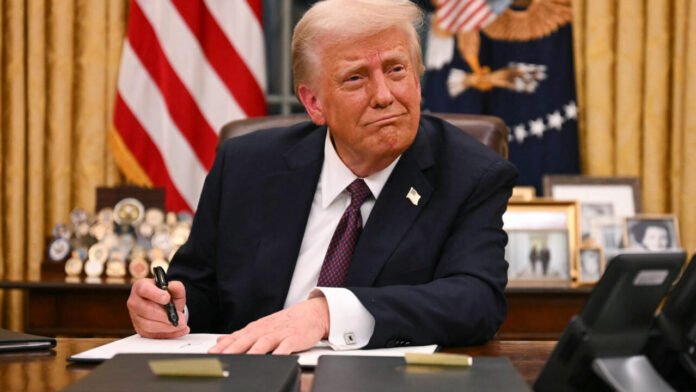The newly imposed 14 per cent tariff by the US President Donald Trump on exports by Nigerian businesses presents a significant risk to the $10bn annual exports to the United States.
It has the potential to disrupt key sectors such as oil export and agricultural trade, experts and trade associations concerned about a potential global trade war stated on Thursday.
The economic experts, in separate interviews, noted that the policy, which would raise the prices of goods and services for consumers, would weaken the standard of living, slow down manufacturing activities, hinder international trade and consequently weaken demand for Nigerian oil in the US, one of its key markets.
They also predicted that Nigeria’s oil earnings were poised for a significant decline following the announcement of the new tariff regime.
In an interview, the National President of the Nigerian-American Chamber of Commerce, Sheriff Balogun, stated that since the inception of the African Growth and Opportunity Act in 2000, Nigeria had exported an estimated $277bn worth of goods to the United States, with crude taking the majority.
Nigeria’s exports to the United States currently average between $10bn and $12bn annually, although it has been fluctuating in recent years, according to US and Nigeria trade data.
Trump had announced in a decision widely condemned by the European Union and exporting nations that countries seeking to sell goods to the United States would now face taxes as high as 50 per cent.
The announcement, made during a ‘Make America Wealthy Again’ event in the Rose Garden, marked a dramatic shift from decades of free-trade orthodoxy that had underpinned the global economy since World War II.
In his address, Trump framed the tariff as part of a larger initiative to protect American industries and ensure that other nations play by what he described as “fair” trade rules.
Trump declared the start of what he called a new era of “fair trade”, promising to “supercharge America’s industrial base” and force open foreign markets long accused of shutting out US goods.
Responding to the development, NACC president Balogun warned that the policy could impact trade volumes worth $277bn.
“Since the African Growth and Opportunity Act began in 2000, Nigeria has exported an estimated $277bn worth of goods to the United States under the programme,” he stated. “The vast majority of this trade value comes from crude oil shipments, with petroleum products overwhelmingly dominating Nigeria’s AGOA exports each year. In fact, oil alone accounts for nearly all of Nigeria’s exports under the initiative by value.”
Economic experts say this move threatens Nigeria’s exports to the US, particularly petroleum goods, its major export product. With oil accounting for the bulk of Nigeria’s export revenue, the move could exacerbate economic challenges, including a weaker naira and rising inflation. Additionally, reciprocal tariffs on imported goods like wheat and vehicles could further drive up local prices, compounding the financial strain on businesses and consumers alike.
![]()










